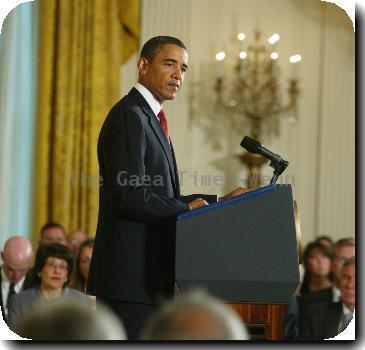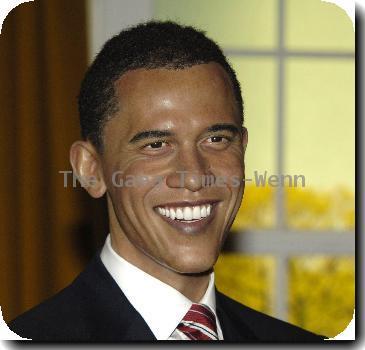US uses high-level immigration talks in Cuba to urge ‘immediate release’ of jailed American
By Paul Haven, APFriday, February 19, 2010
US officials ask Cuba to release jailed American
HAVANA — Top U.S. diplomats used a high-level meeting with their Cuban counterparts Friday to call for the release of an American held in a maximum security prison without charge for nearly three months.
Cuba alleges Alan P. Gross is a spy whose arrest proves Washington is still out to topple the island’s communist government. Gross’ family maintains he is a veteran development worker who came to Cuba to distribute communications equipment to Jewish groups.
Both the U.S. and Cuba also offered restrained praise for the discussions, which lasted about five hours and focused on migration issues. The Cubans said the talks at an undisclosed location in Havana were positive and respectful, while the U.S. called them part of a larger, constructive process.
The U.S. also said in a statement that its delegation, led by Craig Kelly, deputy assistant secretary of state for Western Hemisphere affairs and the highest-ranking American official to visit in years, “raised the case of the U.S. citizen detained in Cuba and called for his immediate release.”
In its own assessment, Cuba made no mention of Gross’ arrest or of American officials’ broaching the issue, saying only that the meeting “took place in an atmosphere of respect.”
Elizardo Sanchez, head of the independent Cuban Commission on Human Rights and National Reconciliation, said a group of Cuban dissident leaders met with a U.S. delegation late Friday. Such a meeting is not unusual when U.S. diplomats visit — but is sure to rankle Cuban leaders, who describe dissidents as Washington’s paid stooges.
The regularly scheduled migration talks came at a low point in relations between two Cold War enemies that have been at each other’s throats for months about a range of issues, especially the arrest of Gross, who was in Cuba on a program funded by the U.S. Agency for International Development.
He has been held since early December at Havana’s high-security Villa Marista jail. The little-known USAID program in Cuba was begun under President George W. Bush and devotes millions of dollars to the promotion of democracy on the island.
Gross’s company, DAI of Bethesda, Maryland, says he was distributing communications equipment to Cuba’s tiny Jewish community, not to dissidents. Nonetheless, such equipment is tightly controlled by the communist government.
U.S. officials questioned the timing of Gross’ arrest, saying he had been to Havana before on the same program and never had a problem. Gross’ wife, Judy, issued a video statement saying he was a humanitarian, not a spy.
The Gross case aside, “engaging in these talks underscores our interest in pursuing constructive discussions with the government of Cuba to advance U.S. interests on issues of mutual concern,” State Department spokesman Philip Crowley said in a statement.
There has been speculation Cuba will seek to exchange the 60-year-old Gross for five Cuban agents imprisoned in Miami since the 1990s after being convicted of spying. Cuba considers them anti-terrorist fighters who were trying to shut down a bombing campaign by anti-Castro Cuban-Americans.
Parliamentary leader Ricardo Alarcon refused to answer questions about Gross on Friday, but said Cuban authorities would use the immigration talks to bring up the fate of their agents.
“We mention them at every meeting,” he said.
Alarcon added that Havana has offered to widen bilateral discussions with the United States and is still waiting for an answer.
“What we are hoping for is that the United States one day will respond to the additional proposals we have made, seeking to reach agreements in other areas like the fight against terrorism, drug trafficking and also the possibility of perfecting the migration accord we already have,” he told journalists.
U.S. officials have had a different take on the Cuban offer, describing it as a vague proposal to hold talks about talks, not concrete policy changes. They say Cuba should respond to good-faith gestures Washington has already taken, such as loosening restrictions on travel and remittances to the island.
In its statement, Cuba said it hopes that in future talks it can persuade Washington to abandon its “wet foot, dry foot” policy — in which Cuban refugees reaching American soil are granted asylum, while those stopped at sea are sent home. Cuba says granting so many Cubans asylum encourages its citizens to try to flee the island.
The migration talks are intended to monitor adherence to a 16-year-old agreement under which the United States issues 20,000 emigration visas to Cubans a year.
Cuba and the United States have been in a nonstop war of words in recent months over nearly every issue imaginable, from President Barack Obama’s performance at climate talks in Copenhagen, which Fidel Castro called “deceitful” and “demagogic,” to the U.S. relief effort in Haiti, which he termed an occupation.
Cuba was particularly angered by Washington’s decision to continue including it on a list of state sponsors of terrorism.
There are also perennial issues, such as Washington’s insistence that Cuba open its political system to democratic reform and free jailed political prisoners, and Cuba’s demand that Washington drop its 48-year trade embargo and stop meddling in what Havana considers its internal affairs.
Daniel Erikson, a Cuba expert at the Inter-American Dialogue think tank in Washington, said the imbroglio over Gross “adds another sensitive issue to a long list.”
“Anything that further complicates the U.S.-Cuba relationship is inherently not going to help,” he said.
Associated Press writers Will Weissert and Andrea Rodriguez contributed to this report.
Tags: Barack Obama, Caribbean, Cuba, Geography, Haiti, Havana, International Agreements, Latin America And Caribbean, National Security, North America, Terrorism, United States



